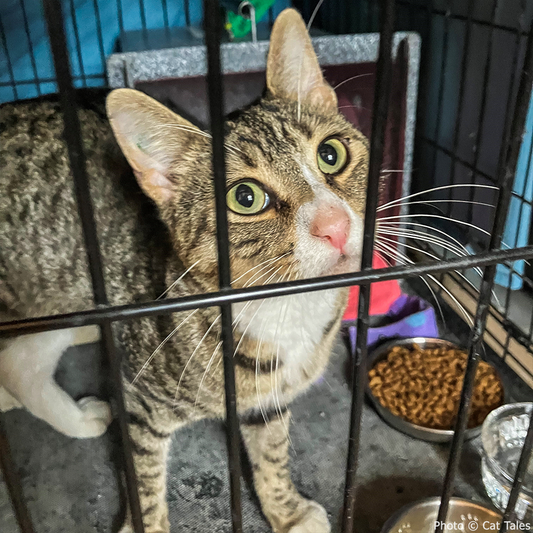Study Finds Having Pets Could Reduce Food Allergies In Children
Malorie Thompson
Growing up with pets is special, as the bond between animals and children can be unmatched. But besides getting a built-in best friend, having a pet as a child may have some health benefits as well!
We know that dogs offer health benefits for adults, as research has shown petting your dog could be good for your brain and dog ownership might help increase your lifespan!
 Photo: Pexels/Ketut Subiyanto
Photo: Pexels/Ketut Subiyanto
Now, research has even more benefits of pet ownership, but this time, it's for children.
The study, "Associations between fetal or infancy pet exposure and food allergies: The Japan Environment and Children’s Study," was published in the journal PLOS One on March 29 and shows that pet ownership may help reduce food allergies in kids.
According to the Centers for Disease Control and Prevention, food allergies affect an estimated 8% of children in the United States, which is around one in 13 children.
 Photo: Pexels/Kha Ruxury
Photo: Pexels/Kha Ruxury
Study Finds reports that lead researcher Dr. Hisao Okabe said: "Food allergy is a condition that reduces the quality of life of patients and their families, imposes a significant medical cost burden, and is a major trigger of anaphylaxis, which is sometimes fatal."
In the study, researchers followed more than 66,000 children from prenatal development until they were 3 years old. What they found is that kids who had been exposed to indoor dogs either in the womb or early in infancy were less likely to develop allergies to milk, nuts, or eggs.
 Photo: Pexels/cottonbro studio
Photo: Pexels/cottonbro studio
Additionally, children with indoor pet cats were less likely to develop allergies to eggs, wheat, and soybeans.
The researchers noted that while dog and cat exposure reduced the risk of some allergies, fish, fruit and crustacean allergies were unaffected.
With the link between pets and allergies, many people want to know why. According to the study, researchers believe it could have to do with the "hygiene hypothesis," which claims that kids should be exposed to germs in order to develop healthy, strong immune systems.
 Photo: Pexels/Sam Lion
Photo: Pexels/Sam Lion
According to the Daily Mail, Okabe explained: "The notion that early-life exposure to pets or older siblings provides an immunological benefit to human health stems from the hygiene hypothesis, first proposed in 1989 and subsequently supported by several epidemiological studies."
Another idea for the link has to do with an infant's gut microorganisms possibly being impacted by pet exposure.
You didn't need to give me another reason to have pets, but here we are.

Malorie works as a writer and editor in Northern California. She's passionate about food, conscious living, animal welfare, and conservation. She's worked with a variety of publications in different sectors but is happiest covering topics close to her heart. When not at her laptop, Malorie can be found enjoying picnics on the beach, hiking in the redwoods, and spending time with her rescue pup, Jax.




















